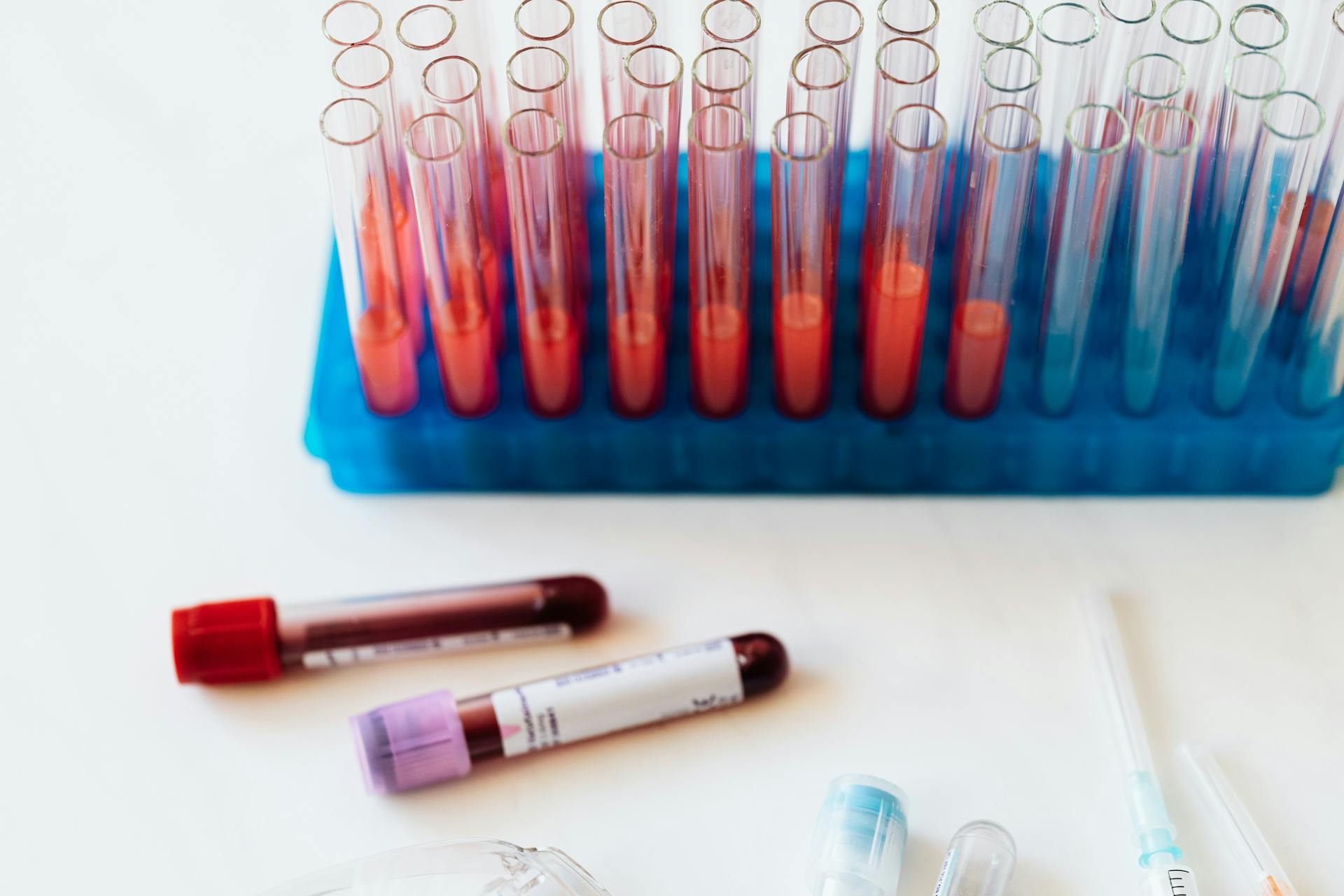
Horse blood tests are important for monitoring the health of your horse. They can provide information about your horse's overall health, as well as help to diagnose and treat specific health problems. There are a variety of blood tests that can be performed on horses, and your veterinarian will determine which tests are best for your horse based on his or her health history and physical examination.
The most common blood tests performed on horses are complete blood count (CBC), serum biochemistry, and blood gas analysis. A CBC provides information on the number of each type of blood cell in the horse's bloodstream. The most important blood cells for horses are the red blood cells, which carry oxygen to the tissues, and the white blood cells, which fight infection. The serum biochemistry measures the levels of various enzymes and proteins in the blood. Enzymes are important for chemical reactions in the body, and proteins help to maintain the structure of cells and perform many other functions. Blood gas analysis measures the levels of oxygen and carbon dioxide in the blood.
After your horse has had a blood test, the veterinarian will review the results with you and explain what they mean. If your horse has an abnormal result, additional testing may be needed to determine the cause.
You might like: Gas Drops
What is a horse blood test?
A horse blood test is a diagnostic tool used by veterinarians to assess the health of a horse. The test can detect a variety of conditions, including infections, anemia, and injuries. It is a valuable tool in the prevention and treatment of horse health problems.
A horse blood test is typically done by taking a small sample of blood from the horse's jugular vein. The sample is then sent to a laboratory for analysis. The results of the test can help the veterinarian to make a diagnosis and to develop a treatment plan.
There are a number of different blood tests that can be done on a horse. Some of the most common tests include a complete blood count (CBC), a blood chemistry panel, and a blood clotting test. The CBC assesses the horse's red blood cells, white blood cells, and platelets. The blood chemistry panel measures the horse's electrolyte levels, kidney function, and liver function. The blood clotting test is used to detect conditions that may cause the horse to bleed excessively.
Blood tests are generally safe for horses. However, as with any medical procedure, there is always a risk of complications. The most common complication is bruising at the site where the blood was drawn. In rare cases, more serious complications, such as an infection, can occur.
Blood tests are an important part of the diagnostic arsenal of any veterinarian. They can be used to detect a wide variety of conditions and to develop an effective treatment plan.
For more insights, see: What Kind of Dog Is Cannoli on B Positive?
What do the results of a horse blood test mean?
A horse blood test can reveal a lot about the health of your horse. The results can tell you if your horse has anemia, is dehydrated, has a fever, or if there are any other health concerns.
For another approach, see: Health Certificate
How is a horse blood test performed?
A horse blood test is usually performed by a veterinarian. The vet will take a small sample of blood from the horse, usually from the neck or chest. The blood will then be sent to a laboratory for analysis.
The purpose of a horse blood test is to check for various health conditions, such as anemia, infection, and organ dysfunction. The blood test can also be used to check for the presence of performance-enhancing drugs.
The horse blood test is a simple and quick way to check for many different health problems. It is a non-invasive procedure that is relatively low risk.
For more insights, see: How to Check a Cat's Blood Sugar?
What are the benefits of a horse blood test?
Horse blood tests can be used for a variety of purposes, including to determine if a horse is sick, to identify genetic markers, and to monitor horses for drug use. Blood tests can also be used to evaluate a horse's fitness for competition. In addition, blood tests can be used to check for signs of dehydration or heat stress.
What are the risks of a horse blood test?
There are several risks associated with a horse blood test. The most common risk is that of infection. If the horse's blood is not taken properly, there is a chance that bacteria or viruses could be introduced into the horse's bloodstream. This could lead to serious illness or even death. There is also a risk that the horse could bleed to death if the vein is not properly located. Other less common risks include allergic reactions to the needle or the lab equipment, and fainting.
Additional reading: Beat Death Rite Bird
How do I interpret horse blood test results?
There are a few different ways to interpret horse blood test results. The most common way to interpret results is to look at the horse's hemoglobin and serum copper levels. The results of these tests can help vets diagnose anemia and other blood disorders. Additionally, a high white blood cell count may indicate infection, while a low white blood cell count could point to a serious illness or cancer.
Other less common blood tests include a serum magnesium level, which can help diagnose neurological problems, and a serum iron level, which can help identify horses with iron-deficiency anemia.
You might enjoy: Wrought Iron Fence
What do high levels of horse blood mean?
There are a few things that high levels of horse blood mean. The first is that the horse is likely in good health and Condition. This is because a horse's blood is constantly replenished and therefore, a horse with high levels of blood is likely receiving a good amount of oxygen and nutrients. The second thing that high levels of horse blood mean is that the horse is likely to have a lot of energy. This is because the blood carries oxygen and nutrients to the cells, which provides them with the energy they need to function. Finally, high levels of horse blood can mean that the horse is under a lot of stress. This is because the body releases cortisol, a stress hormone, into the bloodstream when it is under stress. cortisol can cause the blood pressure to rise, which can lead to a number of health problems.
See what others are reading: Oxygen Infused Bath
What do low levels of horse blood mean?
There are a few potential implications of having low levels of horse blood. This could mean that the horse is not getting enough oxygen to their muscles, which can lead to poor performance and a decrease in overall stamina. Additionally, it could be a sign of anemia or another blood disorder. If the horse is not receiving enough oxygen to their muscles, this can cause lactic acid to build up and lead to muscle fatigue. This can be a big problem for racehorses or others that rely on their stamina and performance. If the horse is anemic, it can be a sign that they are not getting enough iron in their diet. This can lead to a host of problems, including weakness, lethargy, and even death.
A different take: Heldt Performance Horses
What are the normal ranges for horse blood tests?
There are a variety of blood tests that can be performed on horses in order to assess their health. The most common tests are for blood count, serum chemistry, and blood gas analysis. The normal ranges for these tests will vary depending on the age, breed, and health of the horse.
A complete blood count (CBC) measures the number of red blood cells, white blood cells, and platelets in a sample of blood. The CBC can help to diagnose anemia, infection, and other disorders. The normal ranges for a horse's CBC are as follows:
Red blood cells: 5-8 x 10^6/μL
White blood cells: 3-12 x 10^3/μL
Platelets: 150-400 x 10^3/μL
A serum chemistry panel measures the levels of various substances in the blood, including glucose, electrolytes, proteins, and enzymes. The panel can be used to assess organ function and to diagnose metabolic disorders. The normal ranges for a horse's serum chemistry are as follows:
Glucose: 60-120 mg/dL
Sodium: 135-155 mmol/L
Potassium: 3.5-5.5 mmol/L
Chloride: 100-110 mmol/L
Calcium: 8.5-11.5 mg/dL
Phosphorus: 3.5-7.0 mg/dL
Magnesium: 1.5-3.0 mg/dL
Creatinine: 0.6-1.8 mg/dL
Bun: 10-24 mg/dL
AST: 5-40 IU/L
ALT: 5-40 IU/L
Blood gas analysis measures the pH, carbon dioxide, and oxygen levels in the blood. This test is used to assess respiratory and metabolic function. The normal ranges for a horse's blood gas analysis are as follows:
pH: 7.35-7.45
CO2: 20-32 mmol/L
O2: 95-105 mmol/L
Check this out: 7 Eleven
Frequently Asked Questions
What does a low RBC mean on a horse test?
A low RBC might indicate anemia, while a high RBC is most commonly seen with dehydration. Anemic horses have difficulty absorbing oxygen and can develop shortened life spans as a result.
Is it normal for a horse to have a low RBC?
Yes, it is common for horses to have a low RBC count. That doesn’t always mean there is a problem, but it is something to be aware of if your horse is showing any signs of being sluggish or not up on his feet as much as usual. If the RBC count falls below 700 per microliter, it is best to take your horse to the veterinarian for further evaluation.
Why is my horse’s red blood cell count so high?
There are several possible explanations for this. One possibility is that your horse has an infection, most commonly a respiratory infection like the common cold or pneumonia. Another possibility is that your horse is exercising excessively and has additional strain on their blood vessels due to the extra work. A third possibility is that your horse may be carriers of a blood disorder, such as polycythemia or sickle cell disease, which can cause high red blood cell counts. If you’re concerned about your horse’s red blood cell count, speak with your veterinarian to get more information.
What does a low RBC count indicate?
A low RBC count indicates a decrease in oxygen-carrying cells in the blood, otherwise known as anemia.
What is the treatment for low RBC count?
There is no one-size-fits-all answer to this question, as the best treatment for low RBC count depends on the specific circumstances and severity of the condition. However, some common treatments for low RBC count include lifestyle changes (such as diet and exercise), medication therapy, and blood transfusions.
Sources
- https://southmountainequine.com/medicine/blood-tests-explained/
- https://thehorse.com/116893/what-does-my-horses-blood-test-mean/
- http://vetlab.com/EQUINE%20NORMAL%20VALUES.pdf
- https://chanceswetake.com/2016/01/18/how-to-read-a-horses-and-a-donkeys-blood-work/
- https://outandaboutdressage.co.uk/reading-interpreting-equine-blood-analyses/
- https://icyhealth.com/what-do-low-co2-levels-in-blood-indicate/
- https://horseandponymag.com/2020/07/09/testing-times-blood-tests-for-horses/
- https://www.horseandhound.co.uk/plus/blood-testing-horses-need-know-hh-vip-676545
- https://www.doctorramey.com/reading-blood-tests/
- https://www.ewalia.com/ewalia-magic-tips/blood-count-horse
- https://www.equine-psychotherapy.com/parasite-control/how-to-read-horse-blood-test-solution.html
- https://www.merckvetmanual.com/horse-owners/blood-disorders-of-horses/white-blood-cell-disorders-of-horses
- https://forums.horseandhound.co.uk/threads/blood-test-results-can-anyone-interpret-for-me.443284/
- https://www.horseandrideruk.com/expert-advice/articles/what-a-blood-test-can-tell-you/
Featured Images: pexels.com


